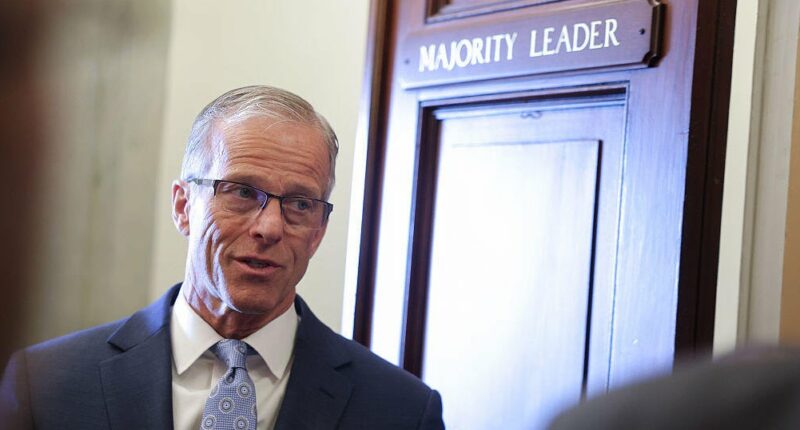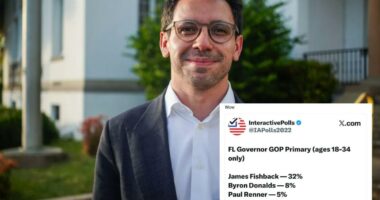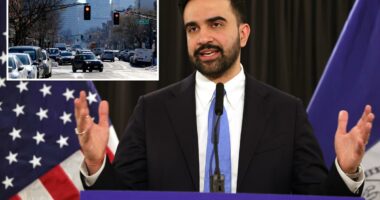Share this @internewscast.com
The Senate is set to reconvene at 11 a.m. today, as announced by the office of Majority Whip John Barrasso. The focus will be on the ongoing discussion regarding the motion to proceed with the six-bill funding package.
Senate to return at 11 a.m., with no votes currently scheduled
Currently, no votes are scheduled, but the Senate is likely to move towards a cloture vote on the motion to proceed. Securing 60 votes is necessary for this motion to pass. If successful, the Senate would have the opportunity to amend the current funding package, specifically to remove funding for the Department of Homeland Security (DHS). The aim would be to maintain DHS funding at its present level for an additional two weeks.
In an effort to expedite the process, Senators could opt for unanimous consent at any point, allowing them to fast-track the passage if all 100 members are in agreement.
Late Thursday, tensions rose as Senator Lindsey Graham expressed his opposition to the proposed agreement. After attending a meeting in Senate Majority Leader John Thune’s office, Graham voiced his frustration with what he described as severe criticism directed at federal immigration agents. He remarked, “I’ve never been more offended than I am right now by what’s being said about these folks,” highlighting the contentious nature of the discussions surrounding immigration enforcement practices as Democrats seek reforms.
Graham on funding agreement: “This is a bad deal”
Late Thursday, Graham told reporters he was opposed to the agreement. After leaving a meeting in Senate Majority Leader John Thune’s office, Graham pointed to heated criticism of federal immigration agents as Democrats push for changes to enforcement practices, saying: “I’ve never been more offended than I am right now of what’s being said about these folks.”
Graham’s opposition could prevent Senate leadership from quickly moving forward through unanimous consent.
“This is a bad deal,” Graham said.
Lawmakers left the Capitol without voting Thursday. Senate Minority Leader Chuck Schumer told reporters the bill was held up by Graham, saying Senate Republicans “need to get their act together.”
Asked about Graham’s concerns, Thune said: “I hope we can get these issues resolved. Right now, we’ve got snags on both sides, but tomorrow’s another day.”
Why a funding lapse likely won’t lead to a prolonged shutdown
While funding will almost certainly lapse at midnight, the actual work of shutting down the government is a process that each relevant agency undertakes to determine what activities are essential, which workers will be furloughed and which will continue to work. The White House Office of Management and Budget coordinates each agency’s procedures and tells them when they should begin implementing them.
That process typically wouldn’t begin until Monday, and might not happen at all if the White House determines that funding is close to being approved. Lawmakers often intentionally craft funding bills to expire on Fridays to give themselves some breathing space to finalize a deal before the start of the work week.
If the Senate successfully passes its spending plan on Friday, the focus would then turn to the House. Speaker Mike Johnson has said that the chamber would approve it on Monday, and the president would sign it soon after, ending the funding lapse.
Trump backs spending deal, urges bipartisan support
President Trump threw his support behind the deal with Democrats in a post on Truth Social on Thursday evening, urging members of both parties to support the agreement.
“The only thing that can slow our Country down is another long and damaging Government Shutdown,” he wrote.
The president said: “Hopefully, both Republicans and Democrats will give a very much needed Bipartisan ‘YES’ Vote.”
















